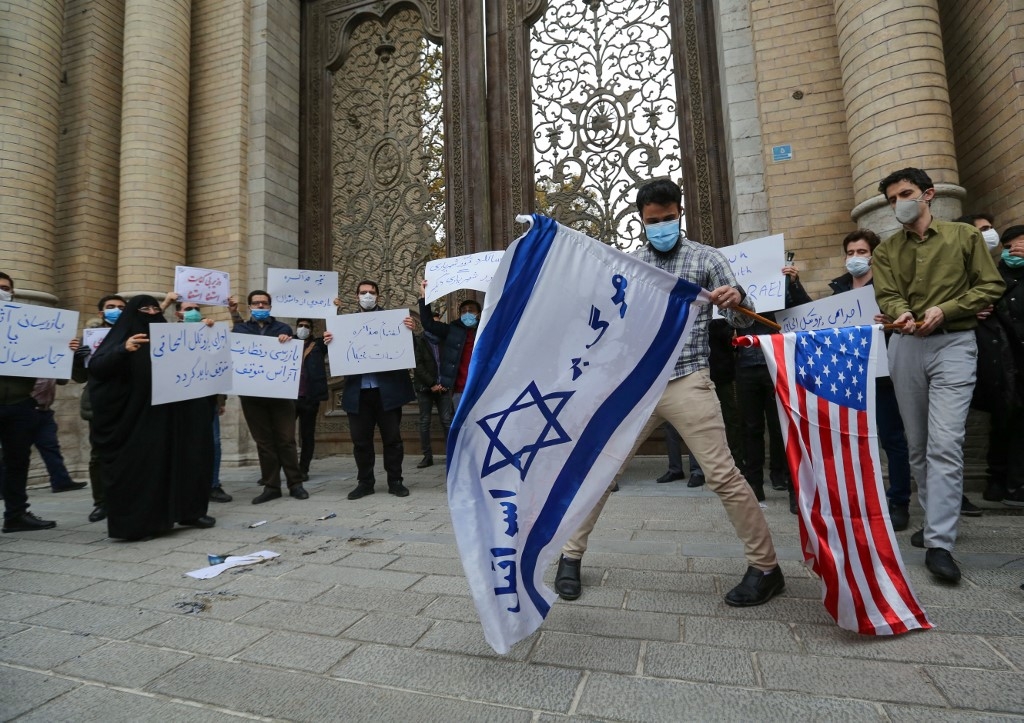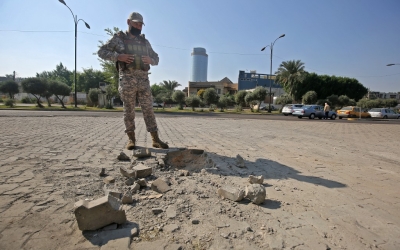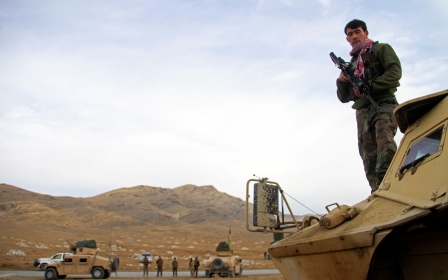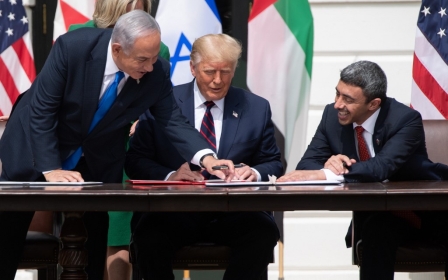Iran warns Israel not to cross 'red lines' in the Gulf

Iran has warned Israel not to cross its "red lines" in the Gulf in the final days of US President Donald Trump's term in office.
Foreign ministry spokesman Saeed Khatibzadeh said on Monday that the Islamic Republic would defend itself against any military "adventure" in the run-up to the 20 January inauguration of President-elect Joe Biden and the transfer of presidential administrations.
The statement came a week after the US Navy announced that a nuclear submarine was being deployed to the Gulf, in a new show of force directed at Iran.
Israeli media have since reported that an Israeli submarine has crossed through the Suez Canal, also headed for the Gulf, a report that has not been officially confirmed or denied.
"Everyone knows what the Persian Gulf signifies for Iran," Khatibzadeh told an online news conference, according to the Reuters news agency.
"Everyone knows the policies [of Tehran] regarding security and national security... Everyone knows very well how high the risk is raised if the red lines of Iran are crossed."
Tehran has blamed Israel for several anti-Iran operations, including the assassination last month of nuclear scientist Mohsen Fakhrizadeh.
While Iran has provided no evidence of Israeli involvement, Israel has neither denied nor claimed responsibility for Fakhrizadeh's death.
The New York Times reported that a US official said Israel was behind the attack.
The US, for its part, has accused Iran of involvement in a rocket attack last week near its Baghdad embassy, as Tehran prepares to mark the first anniversary of the killing of top Iranian commander Qasem Soleimani in a US drone strike in January.
Trump blamed Iran for the attack and said he would "hold Iran responsible" if any Americans were killed.
"We have sent messages to the US government and our friends in the region [warning] the current US regime not to embark on a new adventure in its final days at the White House," Khatibzadeh said.
He said Iran was not seeking to increase tension and called for "rational people in Washington" to take the same line until Biden replaces Trump in the White House.
Tensions between Washington and Tehran have soared since 2018, when Trump unilaterally withdrew the US from the Iran nuclear deal.
Early in 2020, Washington and Tehran came to the verge of war after a US air strike in Baghdad killed Soleimani.
Tensions have continued to be strained, particularly since Fakhrizadeh's assassination.
Both Biden and Iranian President Hassan Rouhani have expressed a willingness to mend relations that have deteriorated under the Trump administration's "maximum pressure" campaign.
Middle East Eye propose une couverture et une analyse indépendantes et incomparables du Moyen-Orient, de l’Afrique du Nord et d’autres régions du monde. Pour en savoir plus sur la reprise de ce contenu et les frais qui s’appliquent, veuillez remplir ce formulaire [en anglais]. Pour en savoir plus sur MEE, cliquez ici [en anglais].





